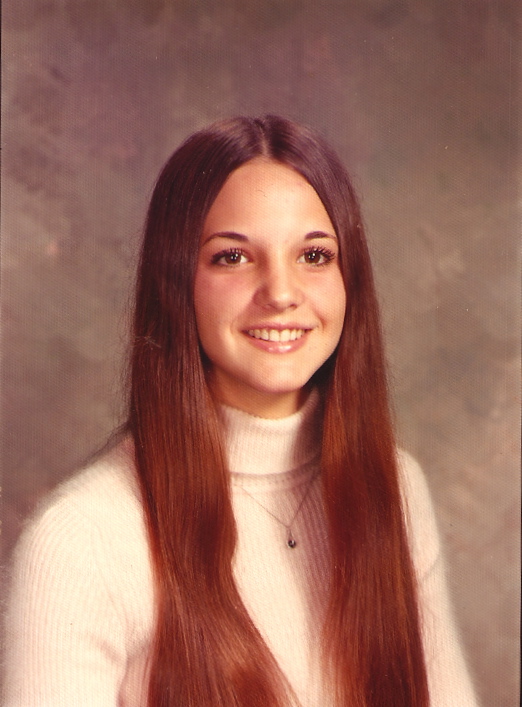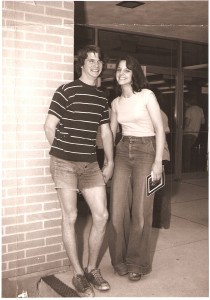 This year marks, well, let’s just say a significant anniversary of my high school graduation—one of those reunions my parents used to go to that made me wonder, “What’s the point?”
This year marks, well, let’s just say a significant anniversary of my high school graduation—one of those reunions my parents used to go to that made me wonder, “What’s the point?”
This is among the questions I’m asking myself now, because my high school class reunion is at the end of July and I’ve got a decision to make. Upon first hearing about it, I wanted to go. But now I’m having second thoughts, and here’s why: social media has put a dent in the thrill of the class reunion.
In his December 2011 story “Remember Me From Yesterday?” published in The New York Times, Douglas Quenqua writes, “There are people for whom seeing old classmates in person will never lose its appeal. But the institution feels a bit deflated now that, thanks to Facebook and similar sites, nobody really has to lose touch anymore.”
One of Quenqua’s interview subjects, who’d recently attended his own high school reunion, puts it this way: “Social media has robbed us of our nostalgia.”
When I joined Facebook in 2009, I was finishing up graduate school. One of my best girlfriends from high school had emailed me to say, “Hey, a bunch of us just signed up on Facebook, you should join us.” I immediately complied, and in one weekend I was connected with a hundred people I went to high school with. It was glorious.
I rekindled friendships with people I had really loved but hadn’t seen in years. Some people I wasn’t close friends with but decided, “What the heck?” In their profile pictures some people looked like their high school selves, except older; others were not recognizable—the same kind of thing you contend with at an actual face-to-face high school reunion.
I became Facebook friends with my brothers’ classmates. Old boyfriends. Kids who’d moved away junior year. “Class of…” groups formed. Three or four women from my class emerged as the “den mothers” of all our high school Facebook groups, and all of a sudden high school felt cliquish again. “Mini-reunions” were organized: small gatherings in our old hometown at local bars and restaurants for whoever could drive or fly back for them.
On Facebook I met up with an old boyfriend. My last night in town for one of these mini-reunions, he took me out to dinner and I shouldn’t have gone. After he dropped me off and peeled out of the driveway, I got a weird message, then another, then another. Things got stalkerish. He started friending my friends on Facebook and continued sending me unwanted messages and emails.
To alleviate the situation I made the decision to disconnect with several high school friends on Facebook. I promptly received an eleven-paragraph message from one of the den mothers, in which she admonished me to just keep quiet and look pretty.
I will tell you, frankly, as a friend,” she wrote in a Facebook message, “that ‘un-friending’ people you [and he] may have in common looks over-reactive.”
By the sixth paragraph, she was in a frenzy:
I REALLY am getting more annoyed about it. You are almost forcing people to choose sides in some personal and psychological battle, and it is getting old and weary already.”
I dropped out of our “Class of…” Facebook group. She in turn blocked me from the group.
While back in Cleveland for my mother’s funeral in 2011, a friend told me that this same classmate—a fervent genealogy buff in addition to everything else—had posted in the Facebook group she blocked me from that she had traced back her family and my family, and discovered that we were related. She also posted my mother’s obituary there.
Upon hearing this, I sent her a message requesting that she remove the posts, for the sake of our family’s privacy. Her response:
Reminder… Your family published it in a PUBLIC newspaper. The information was already out there.”
On my family being related to hers:
Facts are facts. I don’t like the fact we are distant cousins either, even if true…”
Then this:
You consistently piss on people who only want to do nice things or say nice things about you. What is wrong with you? Yeah, I will take it down, though I can also explain to everyone, that even attempts at nice gestures and comments, and celebrations of you or your family, apparently upset you. I am sure they will all understand…”
(My father was livid about this when I told him about it earlier this year.)
Is it any wonder that part of me doesn’t want to go to my high school reunion?
It’s not just this person, it’s also the extreme-right conservative spewing hate on everyone’s timeline; the guy who demanded, and I mean demanded, that I meet him for drinks before my flight out of Cleveland and got vitriolic when I said “no”; the one who posted racist jokes; the guy who commented on a photo of me on my motorcycle, “This combines two fantasies of mine.”
I could go on. All of us who are on Facebook can. I really wish I could just put all this aside and go to my high school reunion, and keep quiet and look pretty.
But I can’t. I am a feisty, tell-it-like-it-is kind of gal, and not everyone likes it. But I have never seen the inside of the police station in my old hometown, and I am not about to start now. If I go to my reunion, there are people I will love to see there. But there will also be people I now know way too much about; whom I don’t want to know any more about; whom I don’t really want to see or talk to; whom I would prefer remembering the way they were in high school.
In a recent study at the University of Colorado–Denver, Christopher Sibona surveyed 1,077 Facebook users and found that “the most likely person to be unfriended is a high school acquaintance.” The most common reasons? The person posts “polarizing comments often about religion or politics” and “frequent, uninteresting posts.”
In another study looking at “the emotional impact of being unfriended,” Sibona found a range, from being surprised or bothered, to amused or saddened by being let go. When I unfriended several high school acquaintances during the stalker incident, one of the people I let go accused me of “having a screw loose for disconnecting with so many of us.”
When—and I know it’s when, not if—I see this person at my class reunion, it’s an understatement to say that things stand a chance of being awkward. Multiply this times the 30 other people I’ve also unfriended. Times another five for the fervent den mother.
 My father recently told me, “I wouldn’t blame you if you didn’t go to your reunion. The older you get, the less fun they are anyway.”
My father recently told me, “I wouldn’t blame you if you didn’t go to your reunion. The older you get, the less fun they are anyway.”
Maybe, maybe not. But I do know that I prefer remembering high school on my own terms, not through the lens of self-appointed, self-important den mothers or lost souls or anyone else for that matter. In 2009, I was a little too attached to the past, and I regret it, although I did learn something valuable: living in the present is where it’s at.
I say this, but I don’t consider myself very good at it. The older I get, the more nostalgic I get, and I can over-think the future into oblivion. But the former high school classmates I admire and enjoy hearing about most on social media are the ones who clearly live in the present. They are happy, doing good work, and continue to expand their worlds, even after all these years. They have no expectations of you, even when they discover that you started going by your middle name in the early 90s for professional reasons. My former high school classmates who go with the flow are un-phased by things as trivial as this.
Others want you to be who you used to be, not according to you, but to them.
Will I go to the reunion? I’m still not positive. I’ll get back to you on that.

Douglas Quenqua’s “Remember Me From Yesterday?” in The New York Times
Christopher Sibona’s studies on Facebook unfriending
None of the boys pictured here have ever stalked me. A few of them may have drunk-Facebook-messaged me though.






Recent Comments